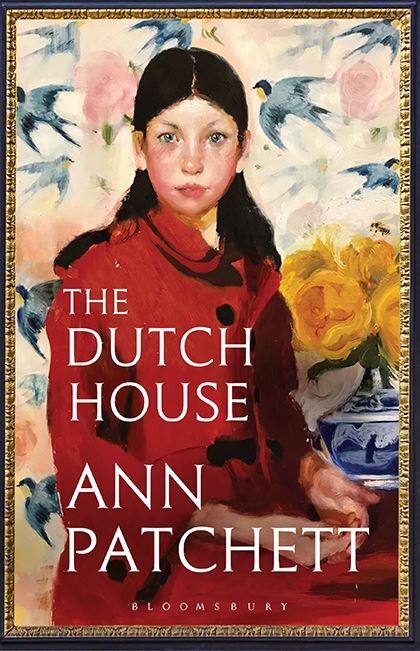London may be sick of Scandinavian trends but there is one, fika, which doesn’t involve an entire lifestyle overhaul or the purchase of costly sheepskin rugs. Fika is a communal coffee break taken twice a day in Sweden — usually involving a cup of strong filter coffee and a cinnamon bun. It’s so sacred in Sweden that, famously, even the Volvo car plant breaks for it. The crucial aspects are that it should be communal, savoured, and it should occur away from your desk — so chugging back a Costa latte at the keyboard really doesn’t count. Fika can’t be hurried however, so only those establishments that allow lingering with a friend count. And as the number of Scandinavian-style cafes in London offering slices of princess cake and knotted cardamom buns has expanded enormously in the past years, here is a round up of the best.
The Dutch House by Ann Patchett
Like the house that gives EM Forster’s Howards End its name, the Dutch House in Ann Patchett’s eighth novel is not always a benign space. It is situated in the suburbs of Philadelphia and was owned by a wealthy Dutch family, the Van Hoebeeks, who abandoned it and left their forbidding portraits, furniture and Delftware behind in 1945. A year later, the house is bought by Cyril Conroy, a realestate developer. But his ascetic wife, stifled by the grandeur of the house, walks out on Cyril and their two children, Maeve and Danny, to instead “help the poor of India.”
Danny narrates the story, which begins in the middle of the 20th century and stretches over 50 years. From the start, he worships his maternal sister Maeve, “her black hair like a blanket down her back.” Maeve is a striking example of Patchett’s ability to make goodness compelling and her set pieces with Andrea, the “silky chinchilla” who marries Cyril and becomes the children’s stepmother, are wonderfully drawn.
Oligarchy by Scarlett Thomas
It sounds in bad taste, but Scarlett Thomas has written a riotously enjoyable novel about a boarding school full of girls with eating disorders. It’s not that Thomas doesn’t take eating disorders seriously; she takes them so seriously that one of the girls dies. But there are few more vivaciously original novelists around today, and surely none of them is having as much fun while making serious points. Elsewhere, Thomas has written compellingly about her own orthorexia (or obsessive desire to control her diet); but this doesn’t mean that she is above lampooning the hysterical pronouncements of the diet-obsessed — not least that fruit, unless you pick it in the wild yourself, contains so much sugar that you may as well eat Haribo, which is nicer, after all.
Olive, Again by Elizabeth Strout
Contemporary fiction’s favourite battle-axe, Olive Kitteridge, is back.
Olive’s first outing as the titular anti-heroine in Elizabeth Strout’s 2008 novel won the author the Pulitzer Prize. She was also played by Frances McDormand in a HBO mini-series of the same name.
Strout has said she never expected to write about Olive Kitteridge again but “she honestly just showed up. I could see her in her car, nosing it into the marina […] I just saw her so clearly that I thought, ‘OK, I guess I will have to write this down.’” In Olive, Again, Kitteridge is now in her early 80s but she is the same woman who, in the earlier novel, said to her only son of his new wife, “She’s so nice, Christopher, it makes me puke.”
Fleishman Is in Trouble
In the heady days of summer before Margaret Atwood’s sequel to The Handmaid’s Tale, The Testaments, was published and before David Cameron had unleashed his memoirs, the most talked about books all centred on love and relationships. From Lisa Taddeo’s riveting non-fiction examination of female sexuality in Three Women to David Nicholls’s latest novel, the lovely Sweet Sorrow about an adolescent relationship, the books that were most hungrily passed around from reader to reader were those concerning our most intimate relationships. Perhaps the hottest book of all, however, has been The New York Times journalist Taffy Brodesser-Akner’s first novel Fleishman Is in Trouble. In fact, so in demand did the novel become, that it was briefly unavailable whilst it was being reprinted. “Believe the hype. Fleishman Is in Trouble is even better than we were promised” was the first line of The Washington Post’s review.
The Secrets We Kept by Lara Prescott
The Secrets We Kept is a novel about a novel. Lara Prescott has written a fictionalised account of the battle to publish Doctor Zhivago and its repercussions, and the CIA subterfuge in getting it read by Russians.
Edmund Wilson wrote in The New Yorker in 1958 that “Doctor Zhivago will, I believe, come to stand as one of the great events in man’s literary and moral history”. The Kremlin did not agree. It suppressed Boris Pasternak’s novel and it was not published in the Soviet Union until 1988.
Doctor Zhivago is the story of the physician and poet Yuri Zhivago and his struggles in the turbulent and tragic decades of the first half of the 20th century, spanning the Tsarist age, the Bolshevik and the Stalin years. He falls passionately in love with Lara Antipova (memorably played by Julie Christie in David Lean’s 1965 film) but woven through the epic love story is a disillusionment with revolutionary ideas.





